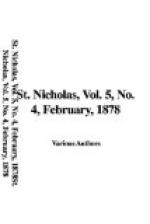To Boston also belonged, some two centuries ago, the celebrated treasure-hunter, William Phips. He was one of twenty-one sons, and was born at Woolwich, Maine, in 1651. Of a bold, adventurous spirit, his first and last passion was to follow the sea, although until he was eighteen years of age he was forced to tend sheep. He then apprenticed himself to a ship-carpenter for four years, taking a trip down the coast now and then, and watching his chance for the next move. He is said to have been inspired by an idea that celebrity and fortune were to be his destiny; and when his apprenticeship was over, he went to Boston and worked at ship-building for a year, until he had the good luck to win the favor of a rich widow. Her he married, and, with the increase of means thus obtained, Phips launched into various enterprises, which did not always turn out well. But he never lost faith in his guiding star, and often told his good wife that “he should yet become commander of a king’s ship, and owner of a fair brick house in the Green Lane of Boston”—at that time the Beacon Street of the plucky little town.
Ten years went by, and Phips seemed but little nearer the realization of his dreams than while tending sheep on the hill-sides of Maine, when the prospect suddenly brightened in an unexpected quarter. This was the time when Spanish and Portuguese galleons were crossing the ocean laden with silver from Potosi and diamonds from Brazil. Pirates and privateers scoured the seas to rob the treasure-ships, and great expeditions were sent out by England in war times for the same purpose. The imaginations of men ran riot during this feverish state of things, and people were ready to believe almost any yarn “spun” in the forecastle.
Phips was just the man to be moved by such tales, and, when he learned of a certain rich wreck on the Bahamas, he at once fitted out a small vessel and went in search of it. He found and recovered the treasure, but the amount was small, being only large enough to whet his appetite for more.
While at the Bahamas, he was told of another Spanish vessel, wrecked off Puerto Plata more than fifty years before, with a much larger treasure. His means not being sufficient for this expedition, Phips sailed for England and made direct application to the Admiralty to aid him in his search. So ably did this true son of the sea represent his cause, that he was given command of the “Rose Algier,” a ship mounting eighteen guns and carrying a hundred men. Thus Phips’s first dream came to pass; he was now captain of a king’s ship, with a roving commission.
The exact position of the wreck was unknown, and the untrustworthy character of the crew added great difficulties to the undertaking. It should be remembered, also, that diving-bells, diving-armor, and the like, were then unknown. But the courage and indomitable perseverance of Phips now came into play, and he had a capital chance to show the stuff of which he was made.




